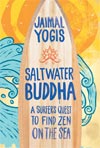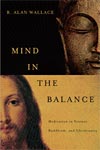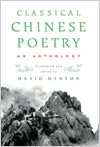 Saltwater Buddha: A Surfer’s Quest To Find Zen On The Sea
Saltwater Buddha: A Surfer’s Quest To Find Zen On The Sea
Jaimal Yogis
Wisdom Publications, 2009
256 pp., $14.95 (paper)
RAISED BY meditating parents, Jaimal Yogis began dreaming of buddhahood at a younger age than most Americans. His debut book, a coming-of-age memoir, documents his endearing and often comical pursuit of this dream. Escaping the suburban drear of a comfortable family life in California, Yogis runs away from home in globetrotting fashion: first to Hawaii as a would-be surfer, then to a Buddhist monastery in Berkeley, and on to Europe, Mexico, and New York, before finally settling down as a journalist in San Francisco. An open love letter to life on the road, the book feels like only the first installment of a samsaric series.

Mind In The Balance: Meditation In Science, Buddhism, And Christianity
B. Alan Wallace
Columbia University Press, 2009
264 pp., $24.95 (hardcover)
WITH HIS latest effort, B. Alan Wallace provides an overview of contemplative practices in Buddhism, Christianity, philosophy, and science. Wallace speaks about each with facility, aiming to build bridges across dogmatic divides. The basis for such sweeping comparisons lies in empirical observation of both consciousness and external phenomena. Wallace was a Tibetan monk for 14 years before beginning his distinguished academic career, and this experience is evident throughout. Instructions for meditation complement a convincing thesis: meditation is not simply a tool for happiness—it is also a legitimate method for studying reality.

Classical Chinese Poetry: An Anthology
David Hinton, Translator And Editor
Farrar, Straus, and Giroux, 2008
512 pp., $45.00 (hardcover)
THIS NEW collection of translated Chinese poems gathers works written between 1500 B.C.E. and 1200 C.E., when most major developments in the world’s longest continuous literary tradition unfolded. David Hinton, a renowned Chinese translator, provides brief but helpful introductions to each section of this thick anthology and notes Chan Buddhism’s large role in the cosmology that guided Chinese poetry after 400 C.E. Su Hui, a poet from this transitional period, foretells Buddhism’s influence in two lines: “Life’s its own mirage of change. And it ends / returned into all empty absence. What else?”
Thank you for subscribing to Tricycle! As a nonprofit, we depend on readers like you to keep Buddhist teachings and practices widely available.